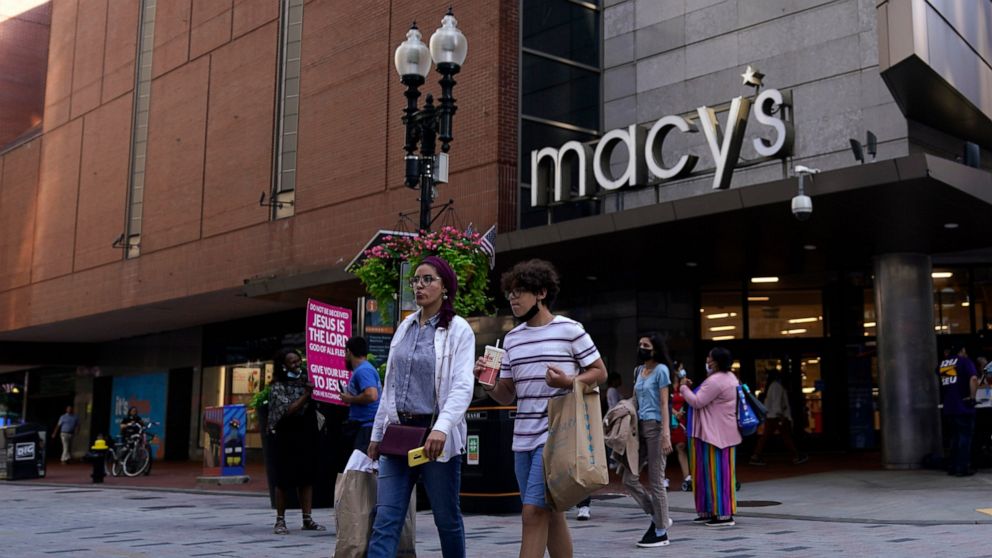US consumer spending slows to 0.3% gain in July
Growth in U.S. consumer spending slowed in July to a modest increase of 0.3% while inflation over the past 12 months rose to the fastest pace in three decades
WASHINGTON — Growth in U.S. consumer spending slowed in July to a modest increase of 0.3% while inflation over the past 12 months hit its fastest pace in three decades.
Last month’s spending fell sharply from a 1.1% rise in June, the Commerce Department reported Friday.
It was the clearest signal yet that the surge in the delta variant of the coronavirus was is an impact on consumer spending, the driving force in the economy.
Consumer prices over the past 12 months have risen 4.2%, the biggest 12-month gain since a 4.5% increase for the 12 months ending in January 1991. The price index tied to consumer spending is the price gauge preferred by the Federal Reserve.
The 4.2% increase over the past year is well above the Fed’s annual inflation target of 2% but so far Fed officials view the jump in inflation as transitory and have not changed their easy-money policies in the belief that rising infections could become a threat to future growth.
Incomes, which provide the fuel for future spending, rose a solid 1.1% in July reflecting in part the strong job gains seen that month.
The government reported Thursday that the overall economy as measured by the gross domestic product, rose by a solid 6.6% in the April-June quarter. While economists have trimmed their forecasts for growth in the current quarter based on the virus resurgence, analysts still believe if COVID-19 cases recede in the final four months of 2021, this year the country will experience its strongest growth since the mid-1980s.
“We believe cooler consumer spending growth is more likely than consumers retrenching and the economy going into reverse,” said Lydia Boussour, lead U.S. economist at Oxford Economics.
The pandemic crushed spending on services like travel and restaurants, though Americans continued to spend money on goods as they held up at home. There is some evidence that the spread of the delta variant may again be cooling spending on services, which had begun to rebound as more people became vaccinated.
Southwest Airlines is reducing flights for the rest of the year because infections starting to cut into the demand for plane tickets.
The airline said Thursday it would cut its September schedule by 27 flights a day and trim 162 flights a day, or 4.5% of its schedule, from early October through Nov. 4.
The 4.2% rise in overall U.S. inflation over the past 12 months was up from a 4% gain for the 12 months ending in June. Core inflation, which excludes energy and food, was up 3.6% for the 12 months ending in June, also the fastest increase since 1991.
The 1.1% rise in incomes was the best showing since a 21% surge in March when the government was disbursing economic support payments from the $1.9 trillion rescue plan that President Joe Biden pushed through Congress. The increase in July reflected strong hiring and the initial payments from the expanded Child Care Tax Credit.
With incomes outpacing spending, the personal saving rate rose sharply to 9.6% of after-tax incomes in July. Economists estimate that the excess savings of households now totals around $2.5 trillion, giving consumers plenty of spare cash to keep spending.
For July, the spending gain reflected a 1% rise in spending on services which includes everything from restaurant meals to utility bills. Spending on durable goods such as autos fell a sharp 2.3% while spending on nondurable goods such as clothing was down 0.4%.
![]()


